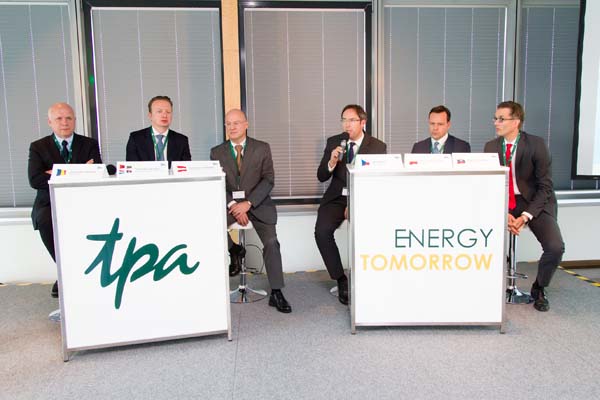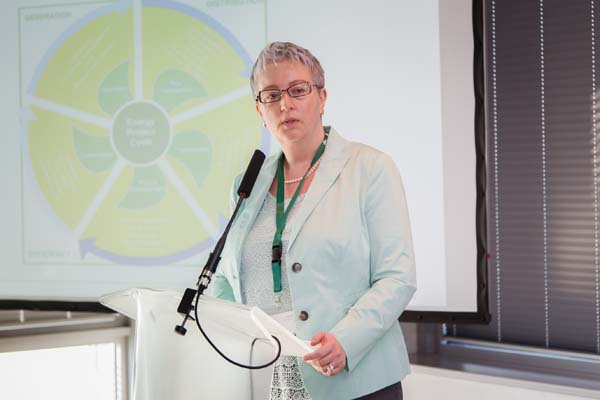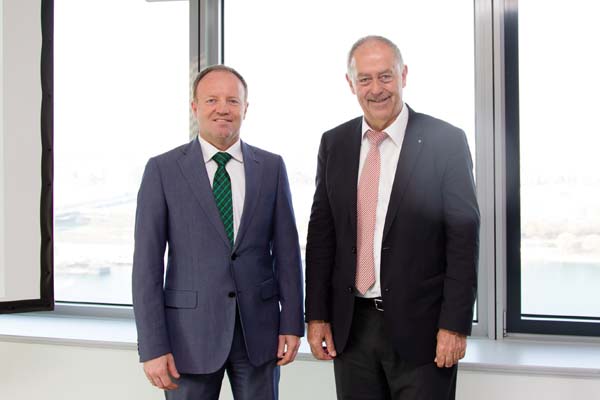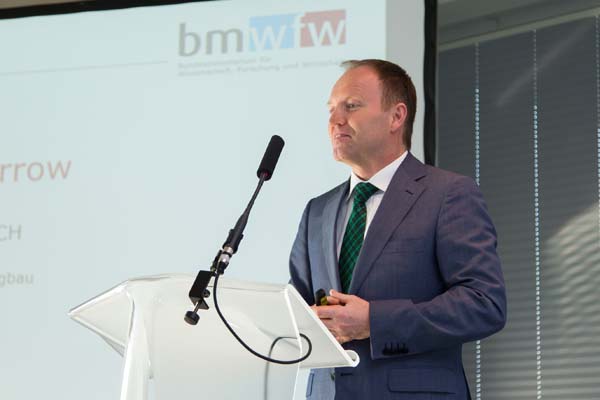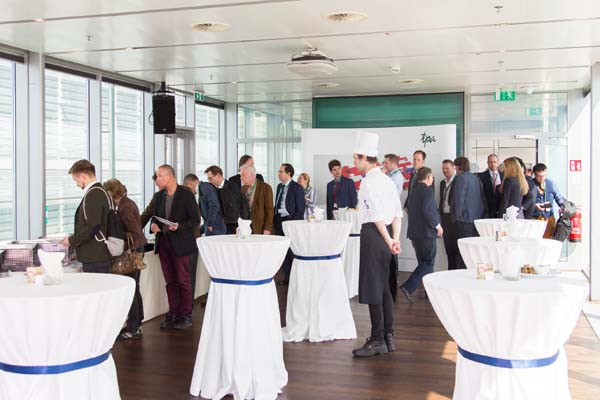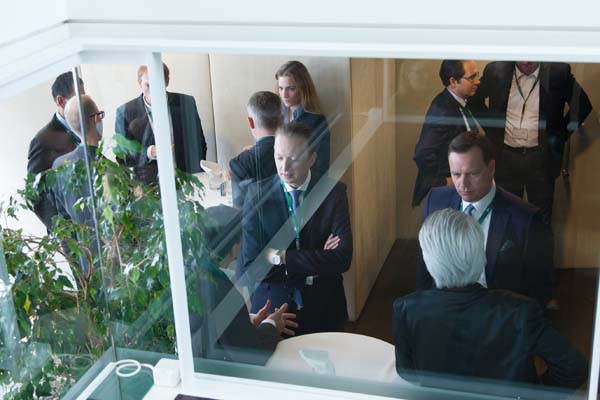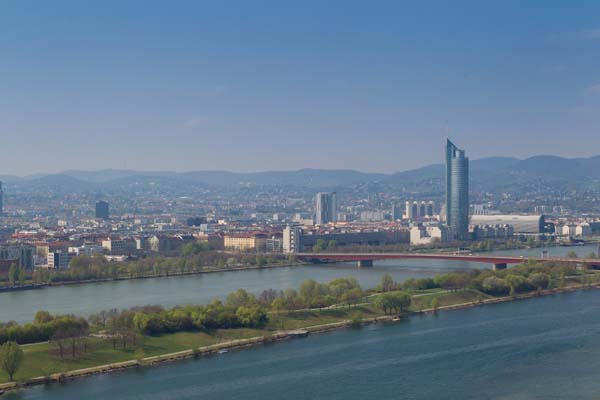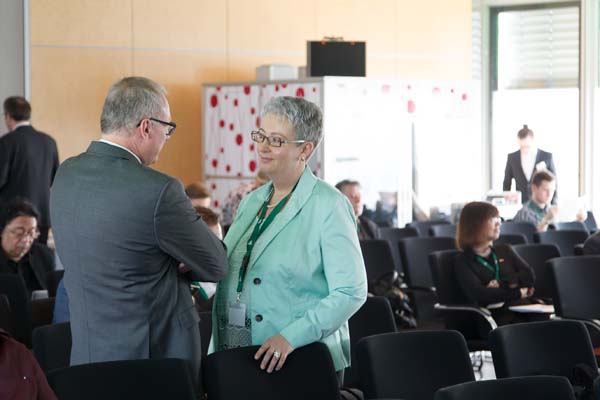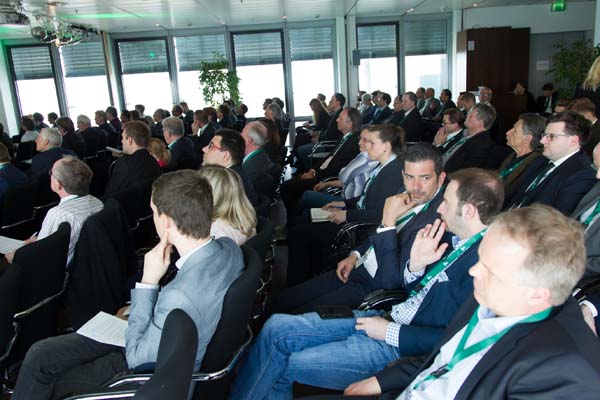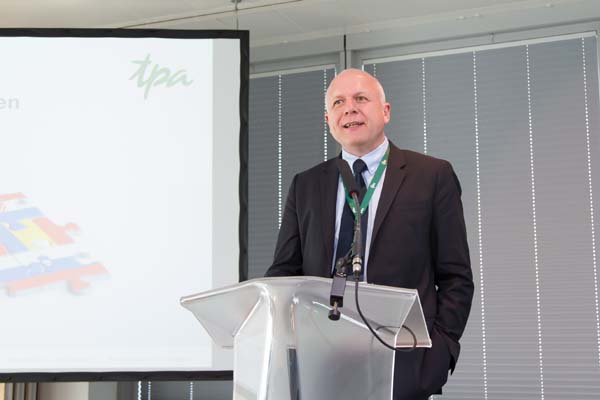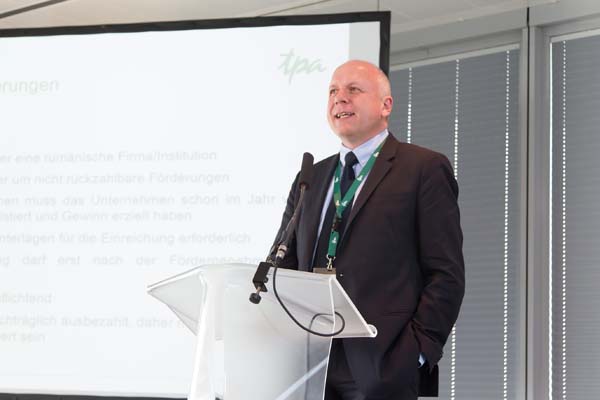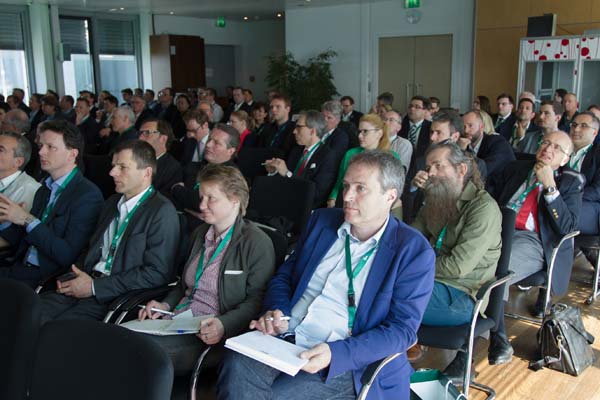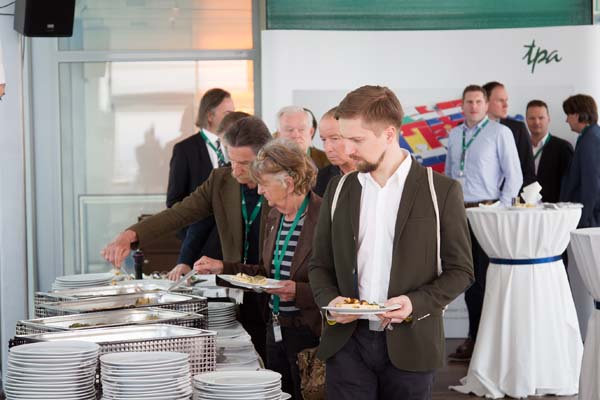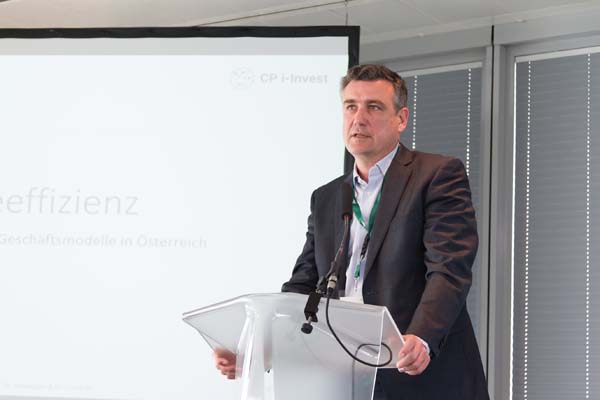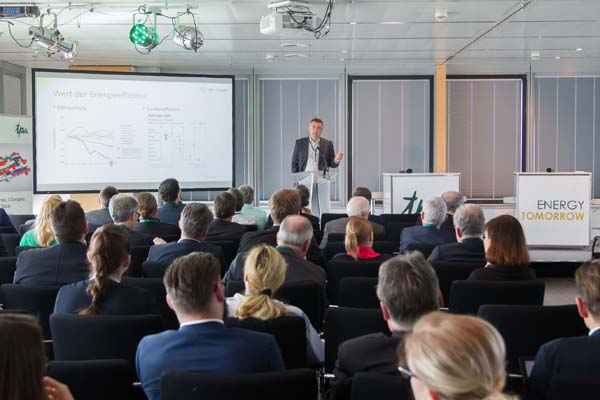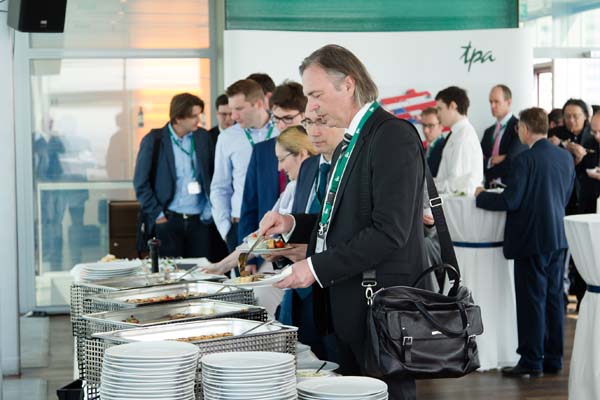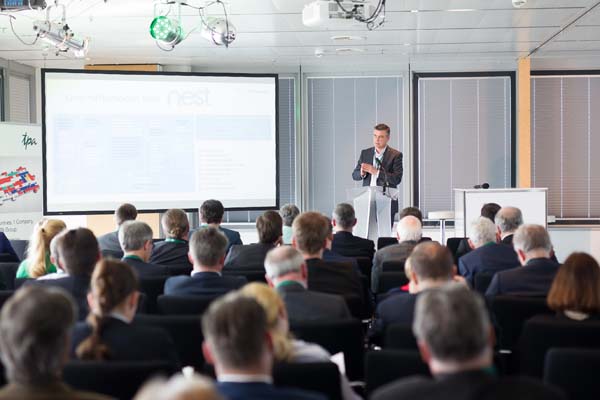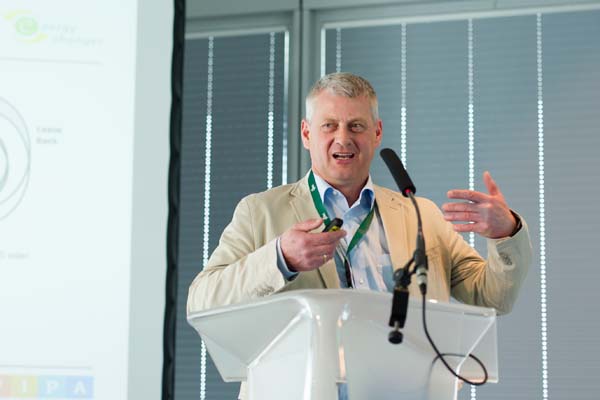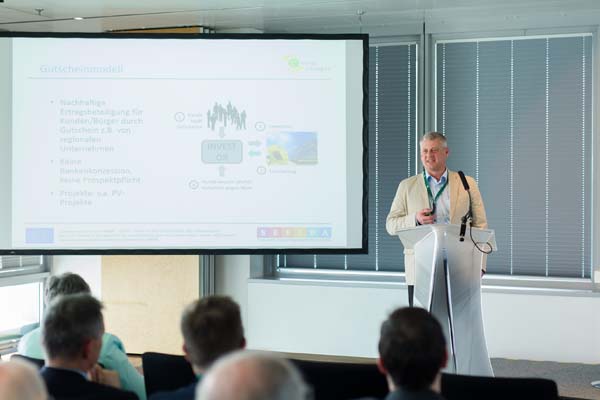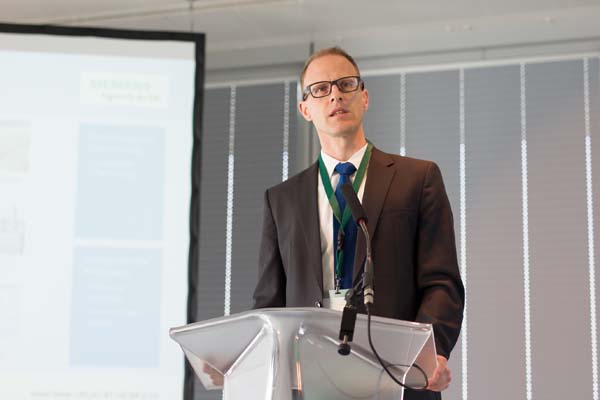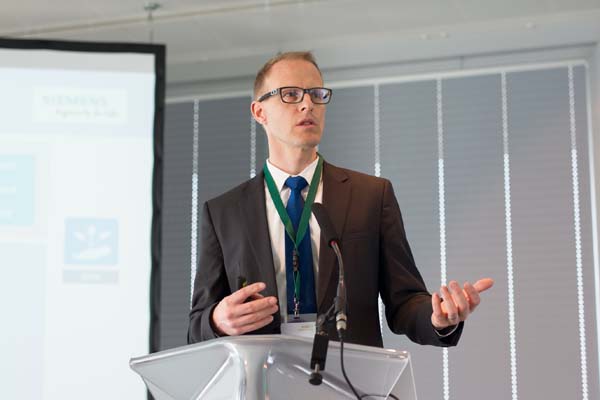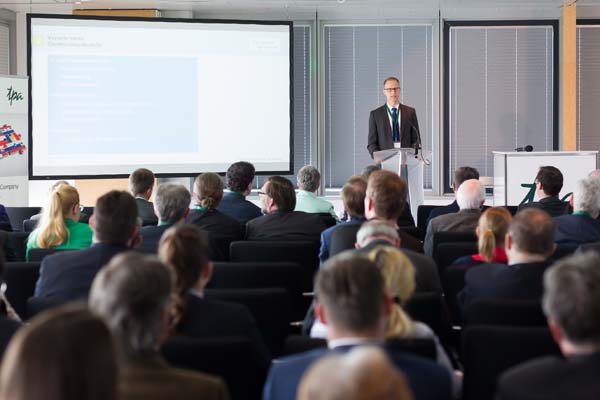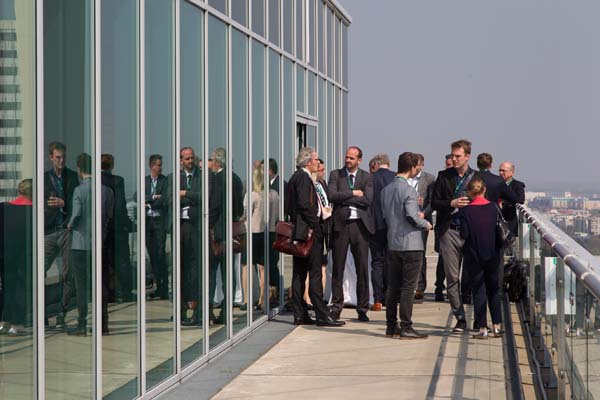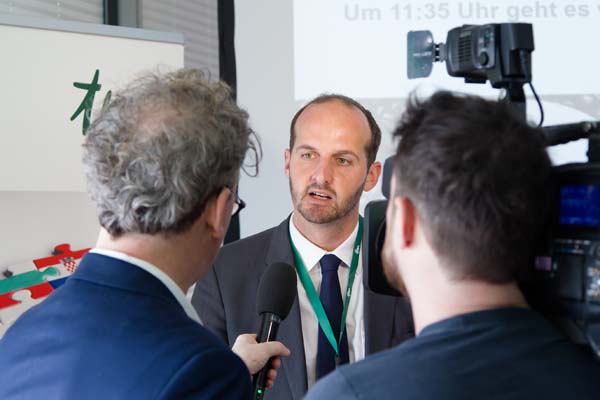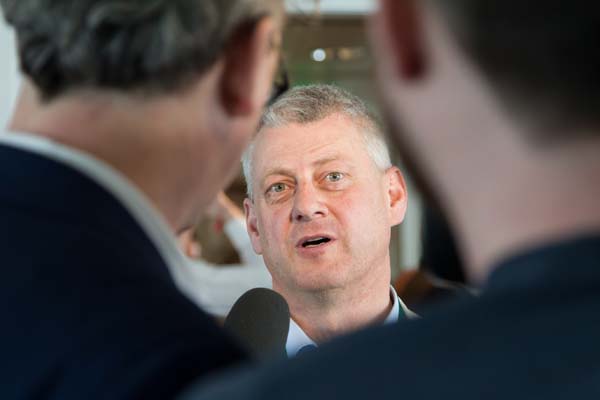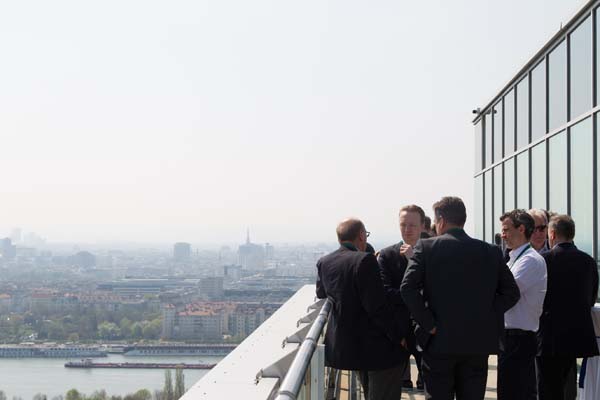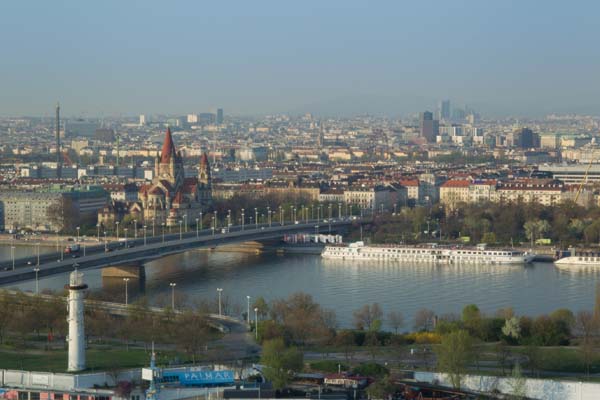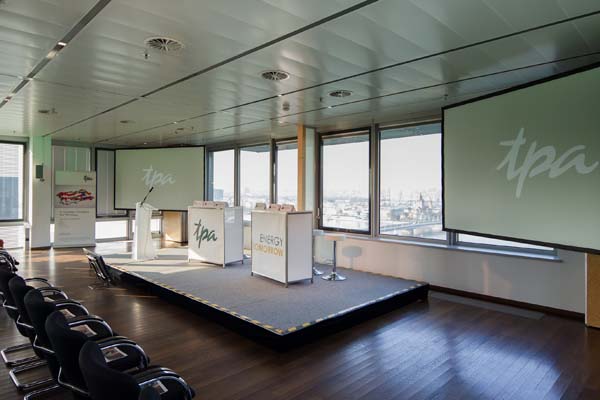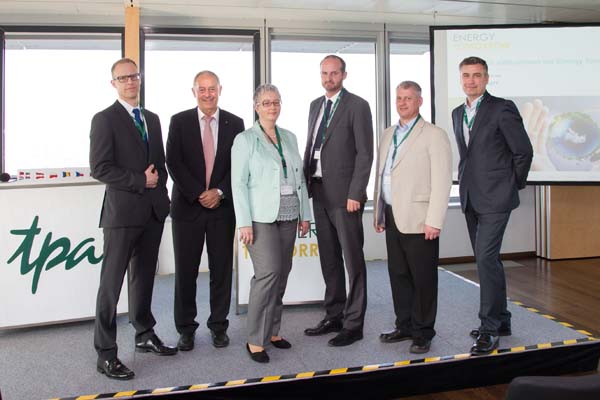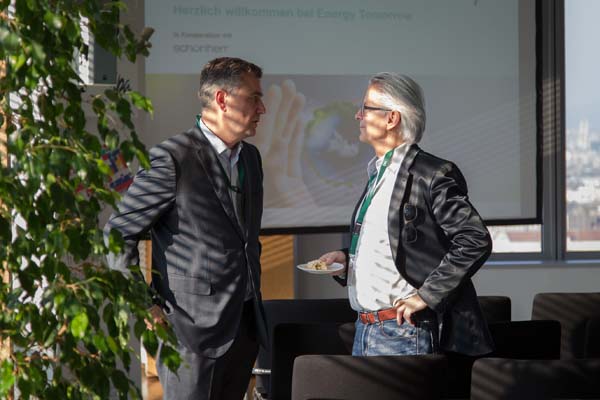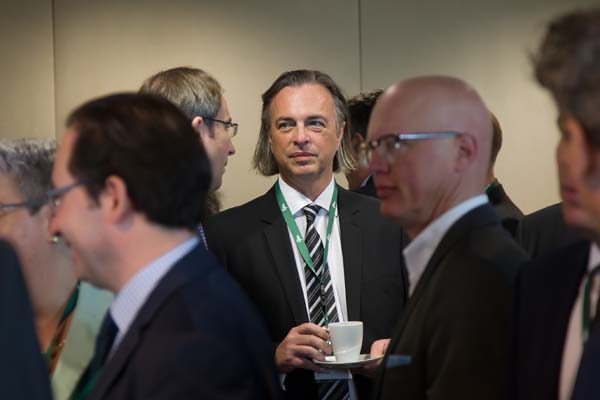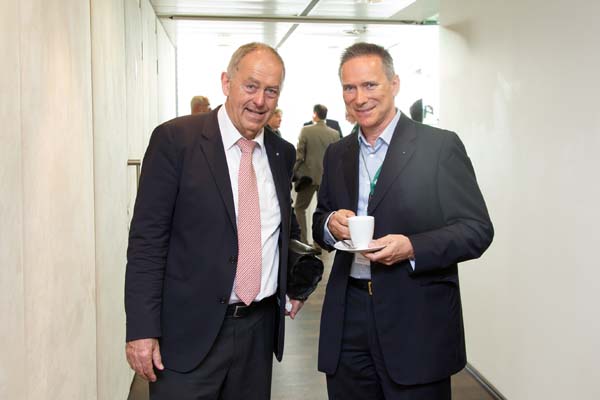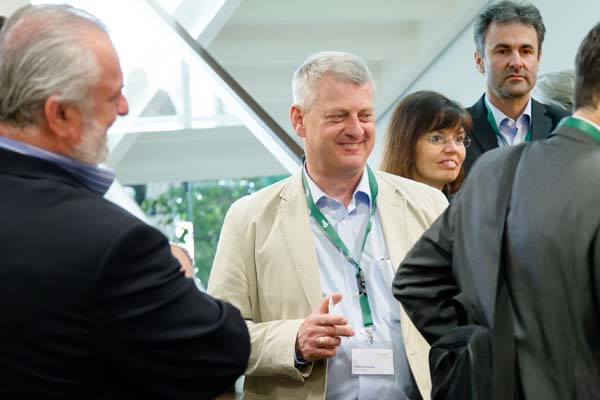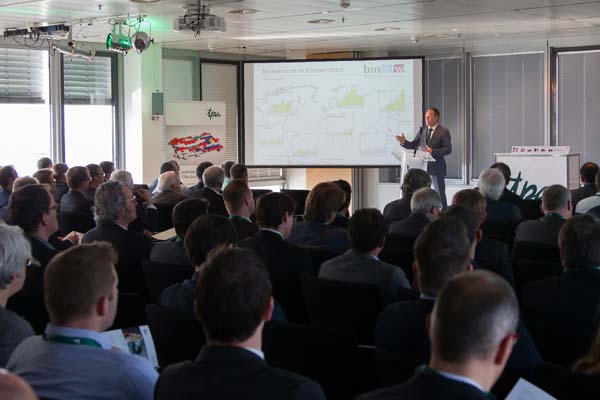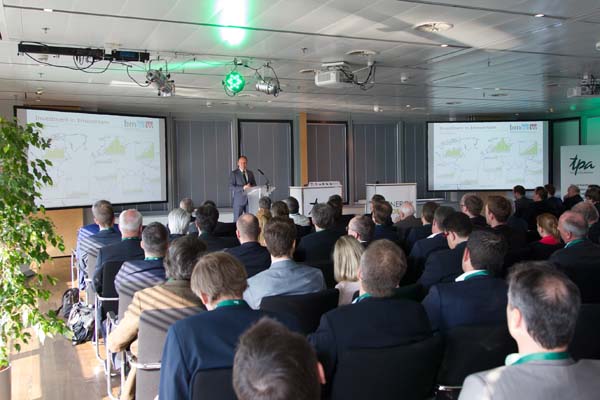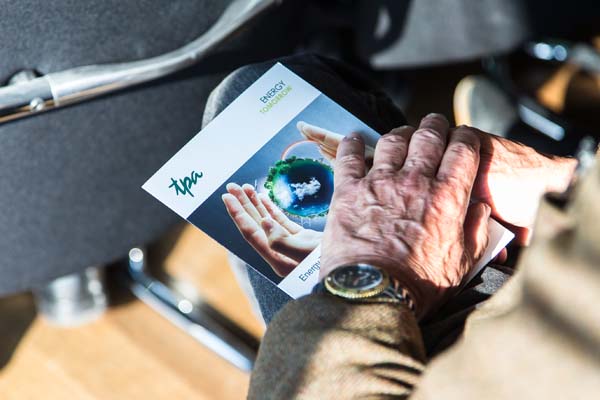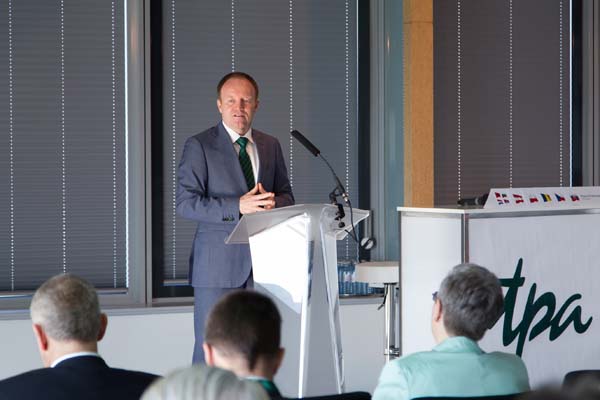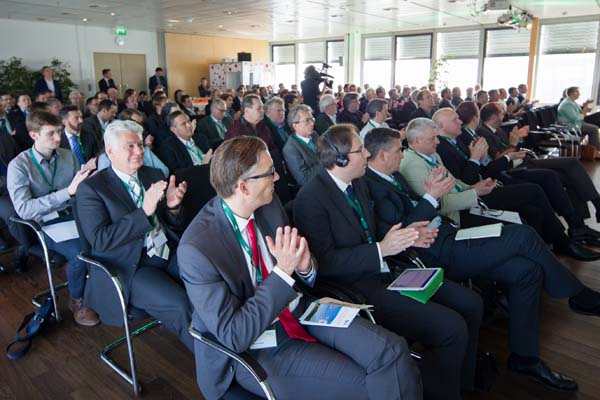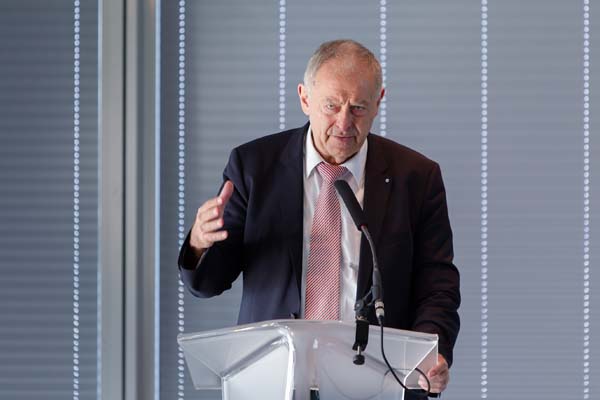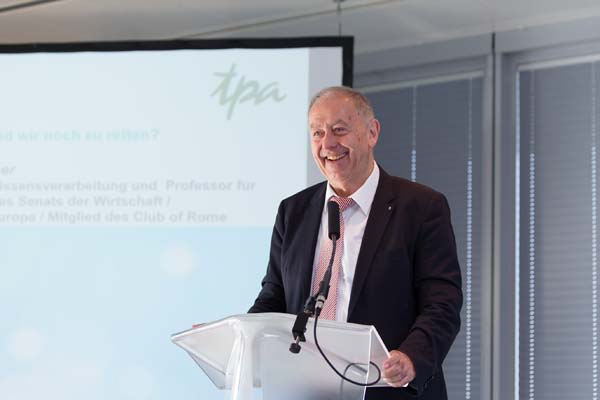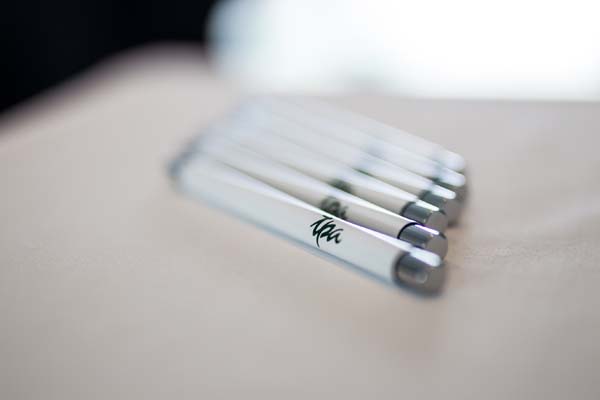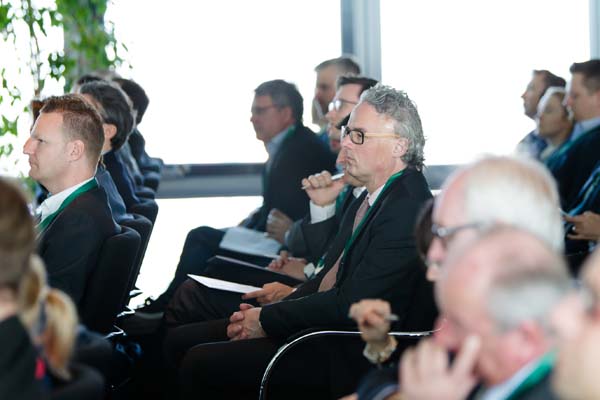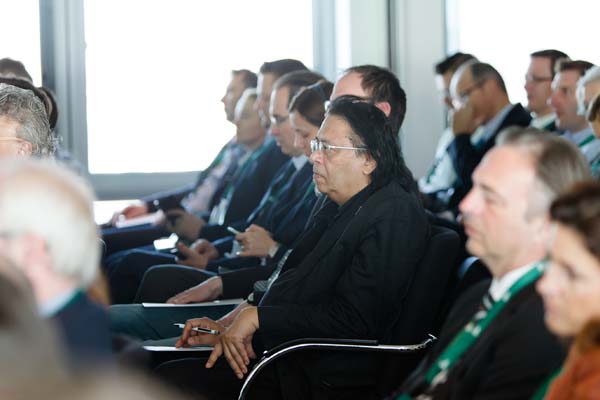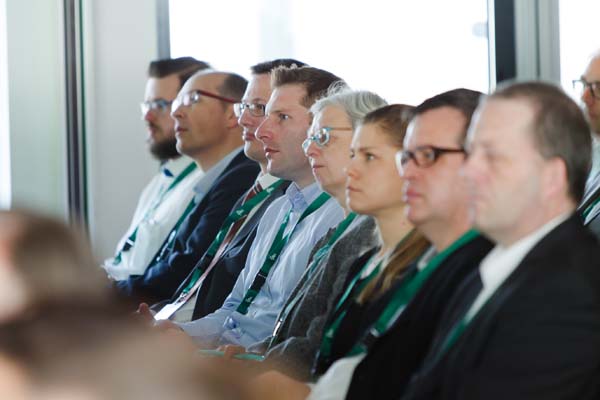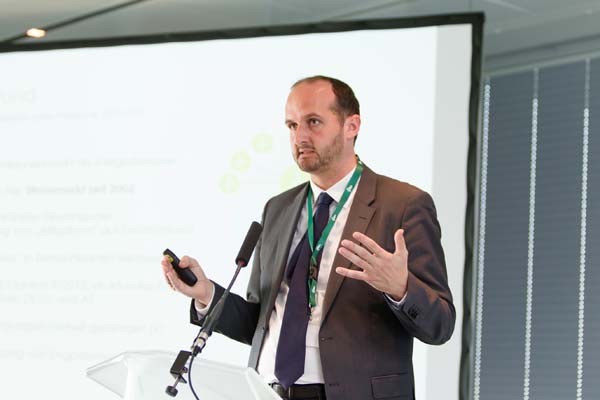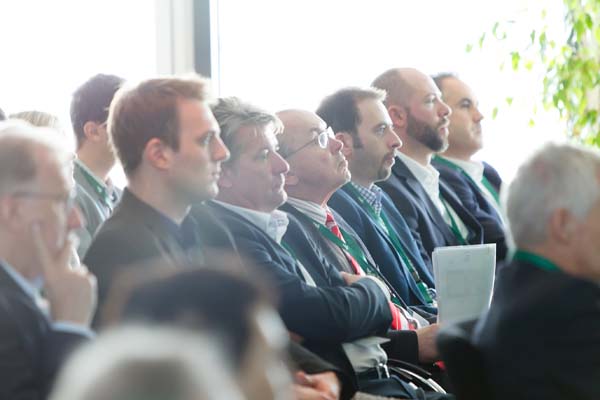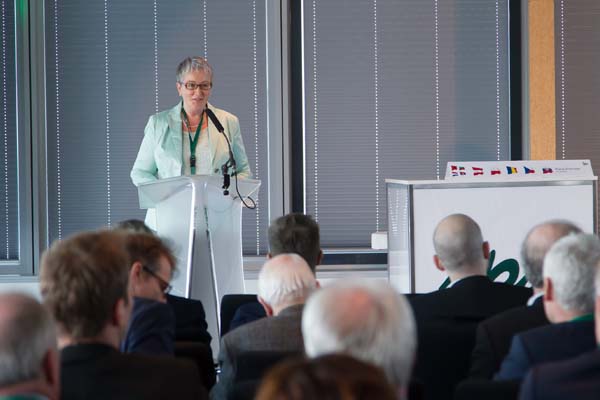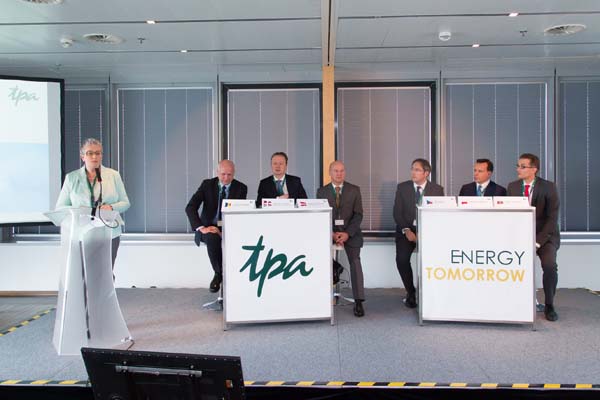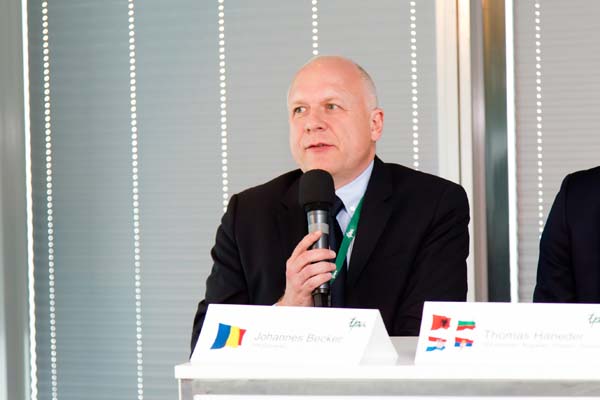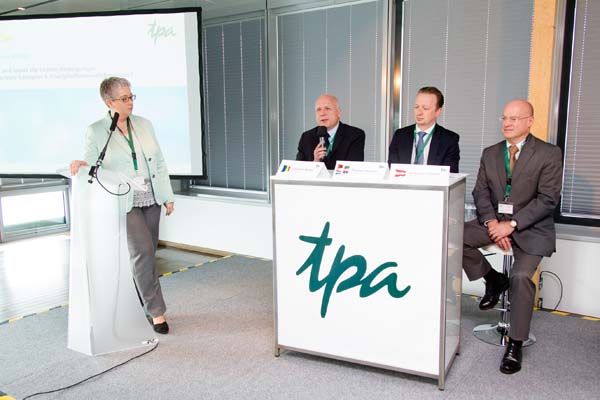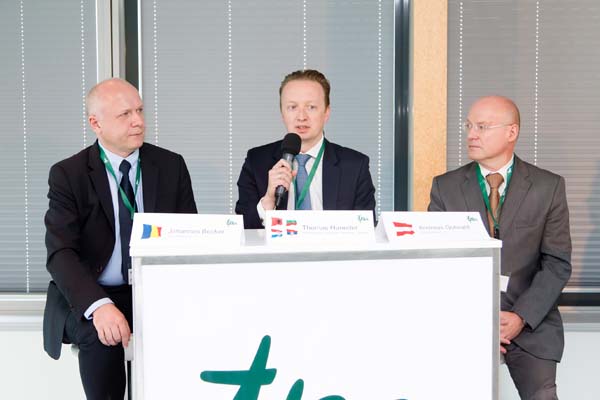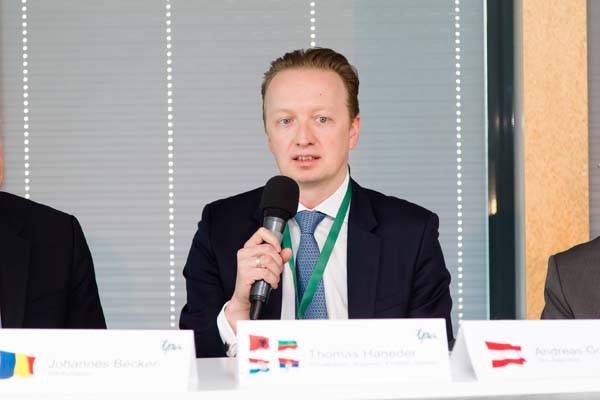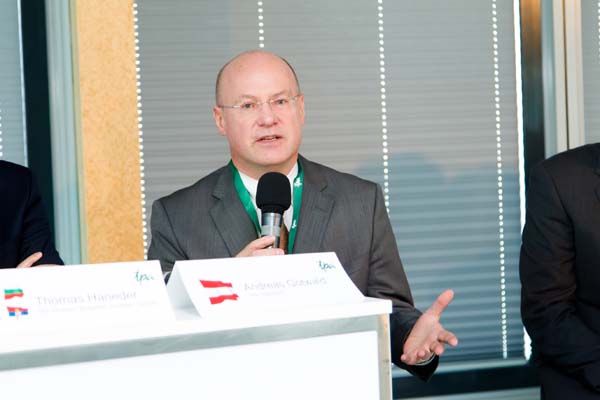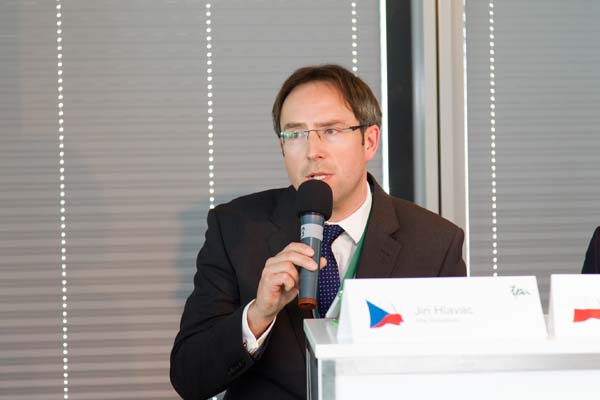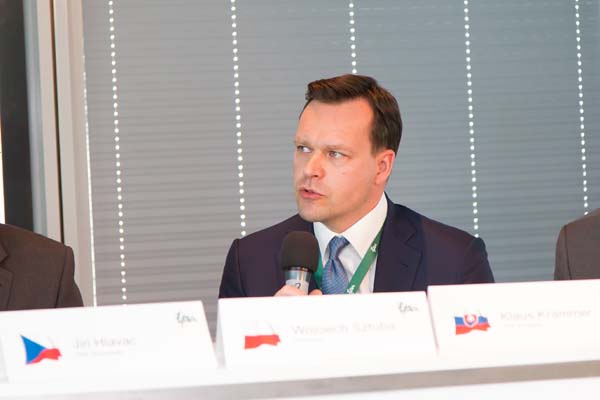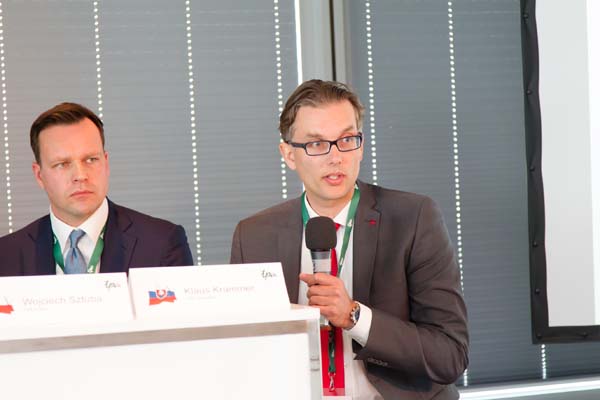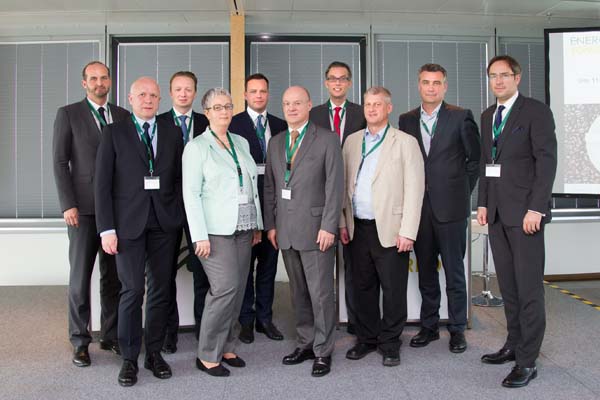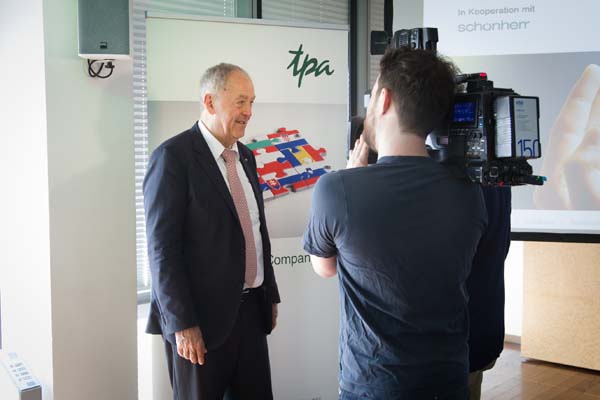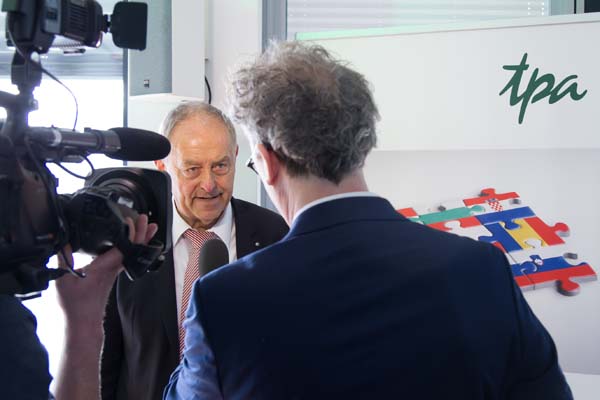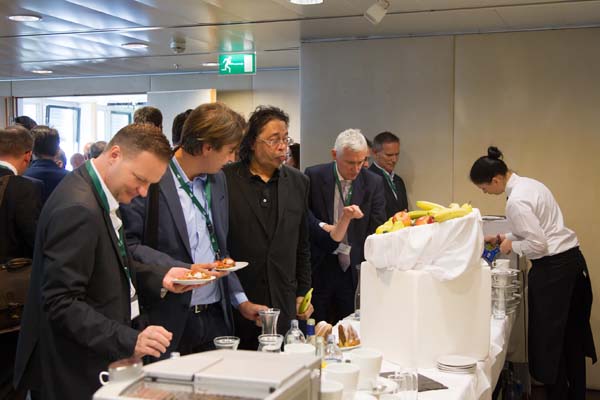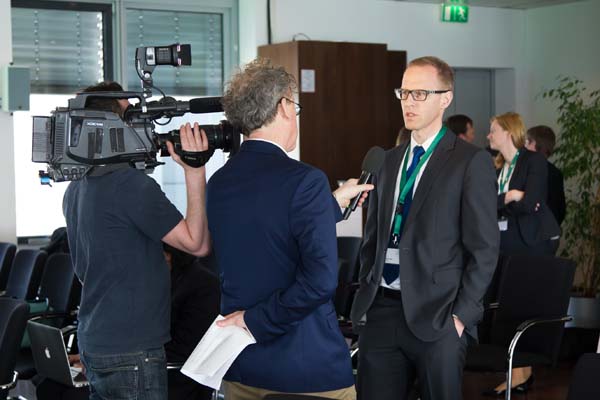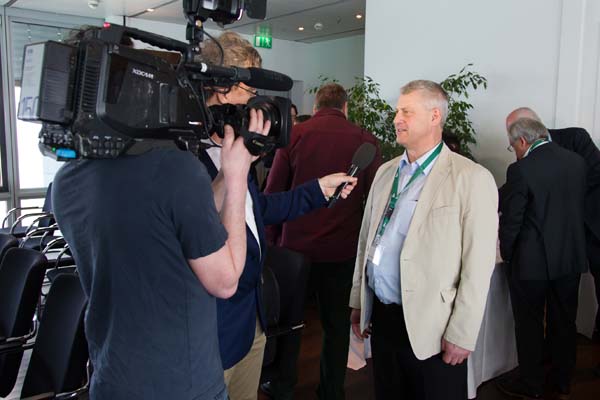6. Energy Tomorrow with Franz Josef Radermacher
For the sixth time, the morning of 3 April 2017 was devoted entirely to the future. Eminent personalities like Professor Franz Josef Radermacher, joint founding initiator and supporter of the Global Marshall Plan Initiative and member of the Club of Rome, and experts from Schönherr, Siemens, Energy Changes, CP i-Invest and TPA inspired the public with high-grade thematic presentations. Energy Tomorrow again provided delegates with a perfect platform for expert dialogue and networking.
This year, the Energy Tomorrow event was again held, in cooperation with Schönherr, in the “Cloud 19” event suite of the Vienna Ares Tower. More than 120 people responded to the invitation of the Austrian tax advisory and auditing services company TPA. “We are delighted that in the past years we have succeeded in establishing Energy Tomorrow as a fixture for the energy industry to exchange ideas and to network,” comments Karin Fuhrmann, tax advisor and partner at TPA, and initiator of this industry event for renewable energy.
Great need for investments in renewable energy
Michael Losch, Section Head and Manager of the Energy and Mining section in the Federal Ministry of Science, Research and Economy, opened the event. In his diverting address, he highlighted that CO2 emissions in Europe have again increased year-on-year, and in Europe in general there is a great need for investment in renewable energy. Mr Losch added that Austria was required to set targets by the summer for expanding renewable energy, to be pursued autonomously with no EU stipulations
The world in 2050 – can we still be saved?
In his keynote address, Professor Franz Josef Radermacher addressed the question “The world in 2050, can we still be saved?”. Radermacher is considered a luminary in the subject areas of structuring globalisation, innovation, the impact of technology, environmentally compatible mobility, and sustainable development. He vividly conveyed to his audience what our world needs above all – sufficient energy! “Energy is the basis of prosperity.” “Food and drink are the concerns of the poor. But energy is the concern of the rich,” says Radermacher.
Climate Targets: No global focus
Professor Radermacher looked beyond the limits of the UN Climate Agreement in his presentation, and was critical of the current “climate planned economy” of the individual EU countries and their national climate targets. Each of them was trying to achieve its targets for itself, emphasised Professor Radermacher. “There is currently no focus on global problems.”
Future in 2050: Population Problem
At the end of his keynote address, Radermacher gave his personal answer to the question “The world in 2050 – can we still be saved?”, which is: “We will probably not manage it.” Because the world’s population is growing too fast. In 2050, Africa will have a population of three billion, which is 1.7 billion more than in 2016. ,” Radermacher summarised, noting that in his view the subject of sustainability and the question of climate “can only work if it makes money”.
Possible separation of the Austrian and German electricity market
Next up was Bernd Rajal, partner at the Schönherr law firm, with his presentation “Sharing the common electricity price zone” examining the possible separation of the Austrian and German electricity market.
Bernd Rajal described to the audience the challenges and consequences of this separation of the electricity market. “Implementing it – the CCR decision is currently expected for 2018 – will, with a high degree of certainty, give rise to increasing energy prices for Austria as an industrial base,” commented Rajal. Production costs will likewise rise, very probably impairing the competitiveness of the Austrian economy.
TPA Business Match: Renewable Energy in CEE
Six TPA energy experts then analysed the markets of Central and Southeastern Europe from various angles. They examined the current situation on the energy market from the economic and fiscal points of view, and discussed the multi-layered conflicting forces at work.
Johannes Becker, partner at TPA in Romania, rounded off the varied and practical programme of Energy Tomorrow with best practice examples in the field of energy efficiency in Romania. His presentation entitled “And it does work – energy efficiency in Romania”, Becker reported on a joint project with the Austrian company Lasselsberger, one of Europe’s largest producers of ceramic tiles.
Energy efficiency in Austria
Christian Kaltenegger of CP i-Invest gave a fascinating presentation on the potential and limits of business models in the field of energy efficiency in Austria. He highlighted the strengths and weaknesses of the Energy Efficiency Act, and clearly summarised why much more could be done. He regards perverse incentives as the principal problem. According to Kaltenegger, there are currently substantial environmentally counter-productive grants and subsidised energy costs.
The subject of energy is one thing above all else – a matter for the boss!
Energy-saving contracting: Building Performance & Sustainability
Energy-saving contracting as an effective way of achieving energy efficiency measures – a case study from Siemens and EMCO – was reported on by Armin Dieter, MSc.
Armin Dieter is responsible for the Building Performance and Sustainability and Building Technologies division at Siemens. His case study related specifically to modernisation, optimisation and energy saving at EMCO Maier GmbH in Hallein. The model project confirmed that the issue of energy is one thing above all else – a matter for the boss.
Financing of Energy Projects: Crowdfunding
As the issue of financing is usually also a matter for the boss, the presentation by Gottfried Heneis of Energy Changes brought the event to an appropriate conclusion. Mr Heneis gave an outline of the four different versions of crowd funding, presenting Crowd4Energy as part of the Horizon 2020 project “Sustainable Energy Financing Platform in Austria” (SEFIPA) – the Austrian platform for “financing sustainable energy”.
